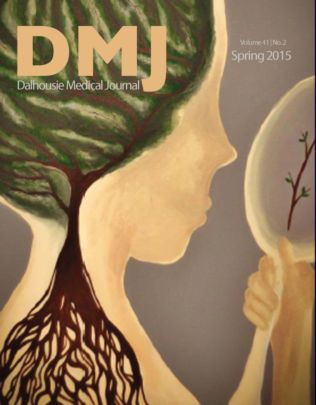Imatinib Induced Tumor Lysis Syndrome in a Patient with Gastrointestinal Stromal Tumor
DOI:
https://doi.org/10.15273/dmj.Vol41No2.5951Abstract
Tumor Lysis syndrome (TLS) is a well-known oncological emergency. It is most commonly associated with bulky and highly proliferative tumors such as leukemias and lymphomas where destruction of cells, usually from chemotherapy, leads to hyperuricemia, hyperkalemia, hyperphosphatemia and hypocalcemia. Such metabolic derangements can lead to renal failure and potentially fatal cardiac arrhythmias.New biologically directed therapies such as imatinib mesylate, a selective tyrosine kinase inhibitor against the proto-oncogene c-kit, may make TLS more common. We present a case of a patient with progressive metastatic gastrointestinal stromal tumor who, during treatment with imatinib mesylate, developed severe TLS ultimately leading to death. This case outlines the importance of clinicians to ensure appropriate monitoring of patient‘s metabolic status during treatment with cytotoxic chemotherapy and biologically directed therapies, including oral agents such as imatinib, and to consider rasburicase or allopurinol and hydration as prophylaxis in
high-risk populations.
Downloads
How to Cite
Karachiwala, H., & Colwell, B. (2015). Imatinib Induced Tumor Lysis Syndrome in a Patient with Gastrointestinal Stromal Tumor. DALHOUSIE MEDICAL JOURNAL, 41(2). https://doi.org/10.15273/dmj.Vol41No2.5951
Issue
Section
Case Report
License
Authors who publish with this journal agree to the following terms:
- Authors retain copyright and grant the journal right of first publication with the work simultaneously licensed under a Creative Commons Attribution License that allows others to share the work with an acknowledgement of the work's authorship and initial publication in this journal.
- Authors are able to enter into separate, additional contractual arrangements for the non-exclusive distribution of the journal's published version of the work (e.g., post it to an institutional repository or publish it in a book), with an acknowledgement of its initial publication in this journal.
- Authors are permitted and encouraged to post their work online (e.g., in institutional repositories or on their website) prior to and during the submission process, as it can lead to productive exchanges, as well as earlier and greater citation of published work (See The Effect of Open Access).


